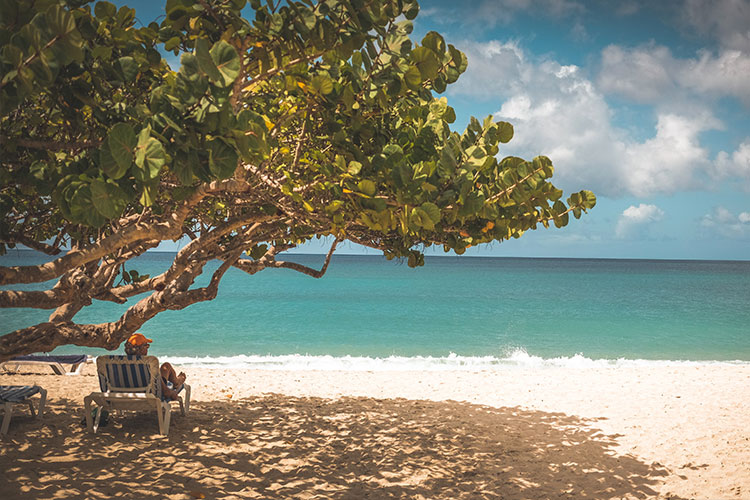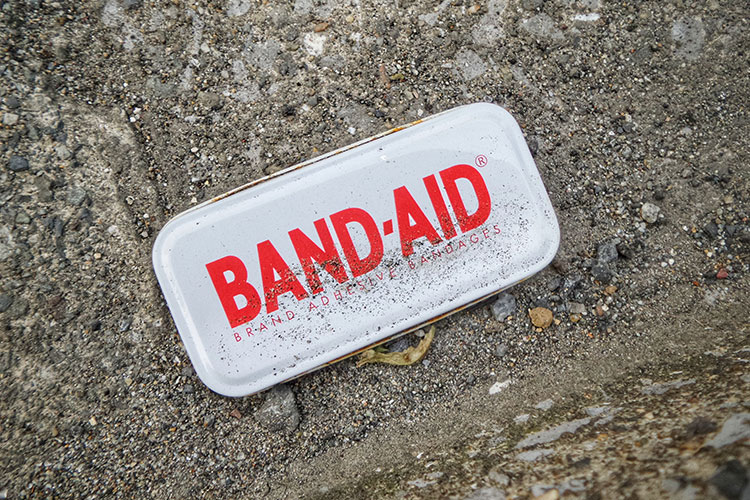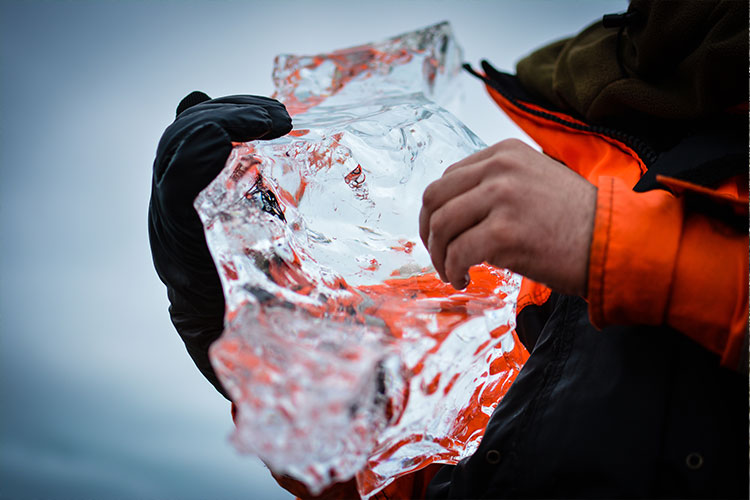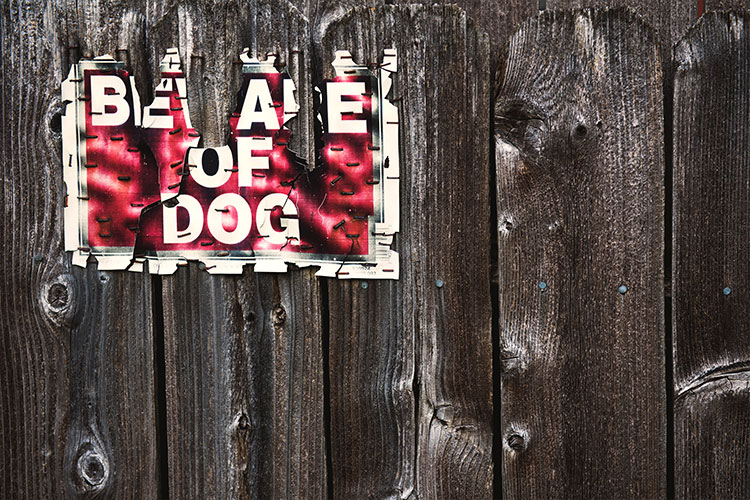
Rain, hail or shine; campers love camping.
It’s for good reason because if you’re one of the lucky ones that own a camper trailer, you know the difference it makes. Camper trailers are one of the most diverse and robust camping options for all kinds of people.
One of the fantastic things about summer camping is that you can make it as little or as much fuss as you’d like. Go “au naturale” with minimalistic gear or sleep on luxury beds at glamping grounds.
Regardless of how or why you go camping, the summertime offers a fantastic window of opportunity to see Australia at its finest. However, it must be said that like any other season throughout the year, summer comes with its own benefits and shortcomings.

In winter you need to pack warm and in summer, the very opposite. But that isn’t the only thing you need to consider when you’re planning your ultimate summer holiday camping trip. Read on for more summer camper trailer hacks.
Soaking in the sun begs for humans to remove as much clothing that is socially acceptable to bathe in the glorious heat. This is a great idea when you’re camping but it often leads to way more scratches, bites, cuts and bruises.
Less clothing means less protection, so having an up to date first kit is a mandatory requirement for any camping adventure, let alone one during the summer.

It’s always a good idea to get extra of the essentials for your first aid box when you decide to go on a camping adventure during the summer.
We recommended buying and packing extra:
These are our general suggestions for your all-purpose everyday camping first aid kit, but if anyone with you requires specialist medical equipment or supplies always bring extra whenever you go camping.
It will always be the things you least expect that get you, like a hidden rock, a sneaky snake or that pesky big yellow thing in the sky. There are some great resources provided by St John and Australia Red Cross through their websites and apps.
For more information on the best apps for your next camping adventure visit our blog.
Packing everything into an esky and driving off into the sunset might sound romantic but it’s far from reality.
Food goes off, it spoils, and funky little creatures like to nestle their way into your food and get you sick. When you’re on a camping trip with limited to no refrigeration, unless you have a camper trailer with a fridge already installed, it can be a struggle to keep food and drinks cold let alone fresh and edible.

There is nothing worse than being in the middle of nowhere and getting food poisoning. Here are a couple of top tips to help you keep your things cool during your summer road trip.
Ice melts quicker the smaller it gets; that’s not exactly news. But what you might not have considered is that making ice at home is way more efficient and cheaper than buying it on the road.
The ice you get from supermarket and service stations in the clear-white bags is one of the worst forms of ice you can get. It’s small, expensive and is barely frozen compared to what you can make at home.
Filling disposable water bottles, preferably 2 litres or more, is a great way to reuse these useless household items. If you have freezer packs/water bottles, then even better.
The longer you freeze water and the larger the amount, the better bang for your non-existent buck. A week is about as long as you’d want to freeze water because after that the ice isn’t getting any colder. Trust us on this one.
Just remember not to fill any frozen contain to the top because the liquid will expand.
The esky is your second port of call and arguably your real best friend for any camping adventure. It’s worth investing in a solid esky that will last you a lifetime. Eskys can get very expensive but also really cheap, find a middle ground that works for you.
A quality esky works like a thermos, it keeps all the good stuff and the bad out, and a cheap esky works like monopoly money; it does nothing but disappoint.
There are many small tricks you can use to get the very best out of your esky. We suggest packing as many ice packs and frozen water bottles in that bad boy as possible. If there’s room, chuck something frozen in there.
Another handy little hack we suggest is chilling the esky before you head out on the camping trip. It’s like cooking something by bringing water up to boil as opposed to putting it in already boiling water; the latter is more effective.
Nature= trees, bushes, branches and bramble, but it’s not always that luxurious on a camping trip. There are times, especially in Australia, where there are no trees in sight. Shade can be a precious commodity under the Australian sun.
Preparing for an occasion when there is no shade beyond what you can make yourself can be life-saving. Mother Nature can’t always be relied on and busting out a tarp, umbrella or portable gazebo is a great way of making sure everyone in the shade.
Time and time again we’re told that Australia has some of the world’s most dangerous plants and animals. While this is true, growing up in Australia has meant we brush of funnel webs and step over snakes every 30 seconds — at least that’s what the rest of the world thinks.
While this isn’t strictly true (or false), the fact remains the same; there are still very dangerous things living in and around Australia. Stepping out of your home and into the wilderness increases your chance of encountering something potentially dangerous.
Depending on where and when you live (time of day or season), you’ll encounter a whole host of unique animals and plants. Some of which can be fatal to even touch.
Many of the state government websites offer camping education resources for local wildlife. If you’re going to a national park or camping ground, it’s more than likely you’ll have to book ahead of time secure a space.
These websites will often have resources available about the dos and don’ts with animals and plants in the area.

Seqirus, an Australian company the creates vaccines and antivenoms for Australian’s venomous creatures, offer a great app on Australian bites and stings. Learn all about Australian venomous creates and what to do if stung or bitten.
Creepy crawlies are the last thing you want to be seeing in and around your sleeping quarters. Even if spiders don’t creep you out (they should) using some of these strategies will keep the bugs away at night and during the day.
No one likes spiders, they’re always an unwelcomed guest to any sleepover. Keeping your sleeping arrangements clean, tidy and secure is a great way of making sure no unwanted bugs start napping on your pillows
It may seem obvious, but being diligent with your doors, windows and any nooks or crannies will help minimise the number of critters that crawl or fly their way into your camper trailer.
Any insect that can fly instantly becomes the worst thing on the planet to deal with, but it’s not all bad news. There are a tone of different methods for reducing, removing and exterminating those pesky mozzies and flies.
Growing up in Australia has meant we’re all mini-experts on how to best combat the dreaded mozzie, but for those of us who weren’t blessed with the gift of not being appetising, we have a few suggests that you may not have thought of before.
Traditional mozzie methods that everyone uses include:
Throwing out words like “natural” might leave you a bit sceptical, surely that’s not going to work right? Trust us on this one, they do. There is a long list of natural bug-repelling fruits, flowers, herbs and vegetables that you can use.
It’s understandable that you don’t want to be lathering your arms in chemicals. These remedies offer a natural, skin-friendly and cost-effective method for giving mozzies the boot this summer.
One thing you shouldn’t be shooing away this summer is the opportunity to own your own Mars camper trailer. Our team at Mars Campers is ready to help you find the perfect camping companion for your next outdoor adventure. Contact us today to talk about what the Mars team can do for you.